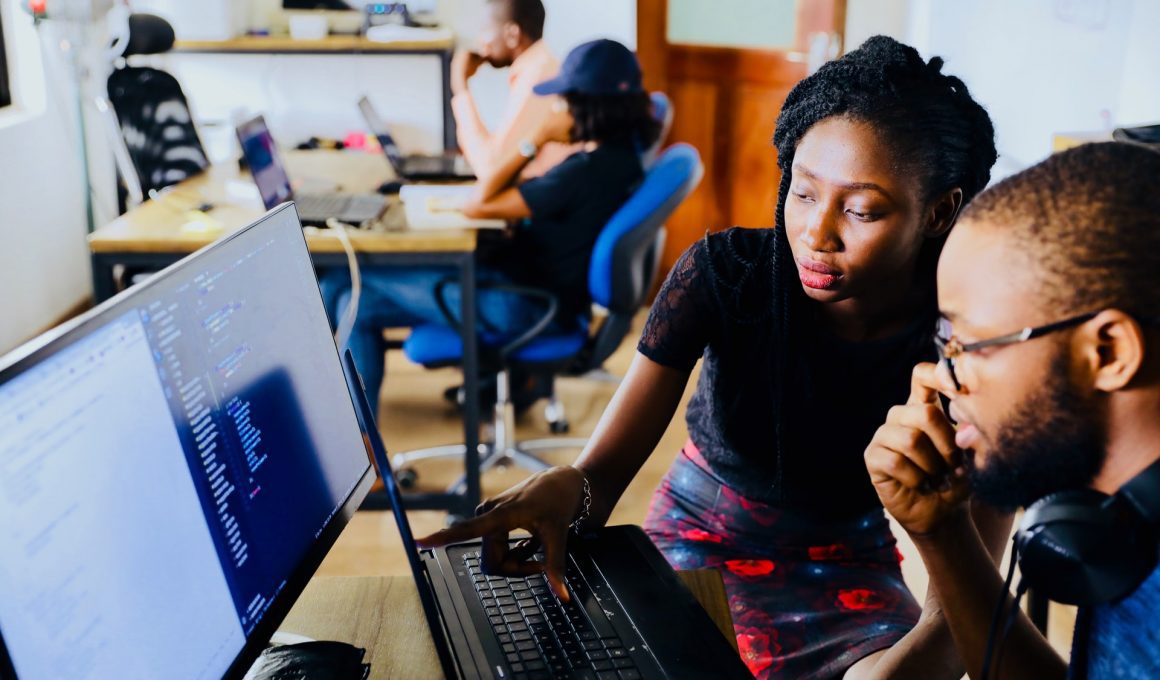By offering free computer science courses in Philadelphia, Chris Avery hopes to give underserved students a high-quality education that leads to well-paying jobs — and substantial change.
Avery is the VP of programs at Steppingstone Scholars, an education nonprofit providing pathways to college or the workforce. In 2015, he created the Blended Learning Initiative, a free computer science program for sixth to 12th graders, which is run in partnership by Steppingstone Scholars, CS4 Philly and Penn Engineering. Students in the Blended Learning Initiative learn skills like robotics and coding.
“The basic premise is helping students who are coming from underserved communities have access to computer science rigor,” Avery said. “If you’re leading to employment … it means that you have opportunities for families to actually be changed because of the program.”
In Pennsylvania, STEM job opportunities are expected to grow by 8% through 2027, according to a 2019 report by the Pennsylvania Department of Education. But the state may face challenges when finding qualified workers to fill those positions. In a 2017 report, 40% of Pennsylvania high schoolers displayed STEM college or career readiness. For Black students, the figure was even lower at 10%. According to the state’s report, research suggests that students of color, low-income students and girls are often unable to access the same high-quality computer science and STEM education as their wealthier, white and male peers.
But Avery and his team members let this information inspire their work, not discourage it. Since 2015, he’s watched numerous students excel through the program and into college, he said.
“The most exciting part for us is that we have kids who are actually pursuing careers in computer science,” Avery added. “Most importantly, because we’ve been doing it long enough, we have kids who are actually graduating [from colleges] as computer science engineers.”
What about pandemic restrictions?
Blended Learning Initiative will offer virtual, hybrid and in-person formats this fall. In-person sessions require proof of vaccination during the application process. Mask requirements depend on the location.
Because the pandemic continues to change, restrictions may look different in future sessions. The initiative runs three sessions a year — summer, fall and spring.
What to expect
A normal day at the Blended Learning Initiative consists of short lectures, small group work and breaks in between.
Because the program is open to a range of age groups (sixth to 12th graders), students are broken into about four or five different cohorts based on skill and grade level. The cohorts are usually made up of two middle school “Intro to Coding” groups, two high school “Intro to Java” groups, and one high school “Advanced Placement Computer Science A” group, with one teacher per seven students, Avery said.
Along with the coursework, the staff invite guest speakers and organize events like college visits. However, visits and speaker events have been virtual since summer 2020 due to the pandemic.
Over the summer 2020 session, Steppingstone invited Dell employees of color to talk to the students about their experience in the computer science field. Students also connected with speakers from Morehouse College. Facilitating these types of interactions helps connect students to role models in the field who look like themselves, Avery said.
“They’re being taught by individuals who actually come from similar backgrounds,” said Avery about the speakers and teachers, which is a key component of the program.
How to apply
Students must apply for the program via an online form. They’ll also fill out a program-specific form, where they’ll write a few sentences about themselves and their interest in the program. To apply, click here and select “STEM Ventures” at the top. The deadline to apply for the fall 2021 session is Sept. 23.
Once accepted, students will need a computer and internet access to participate, both of which can be facilitated by Steppingstone Scholars if necessary, Avery said.

Technical.ly is one of 22 news organizations producing Broke in Philly, a collaborative reporting project on solutions to poverty and the city’s push toward economic justice.
Before you go...
Please consider supporting Technical.ly to keep our independent journalism strong. Unlike most business-focused media outlets, we don’t have a paywall. Instead, we count on your personal and organizational support.
Join our growing Slack community
Join 5,000 tech professionals and entrepreneurs in our community Slack today!

The person charged in the UnitedHealthcare CEO shooting had a ton of tech connections

From rejection to innovation: How I built a tool to beat AI hiring algorithms at their own game

Where are the country’s most vibrant tech and startup communities?


